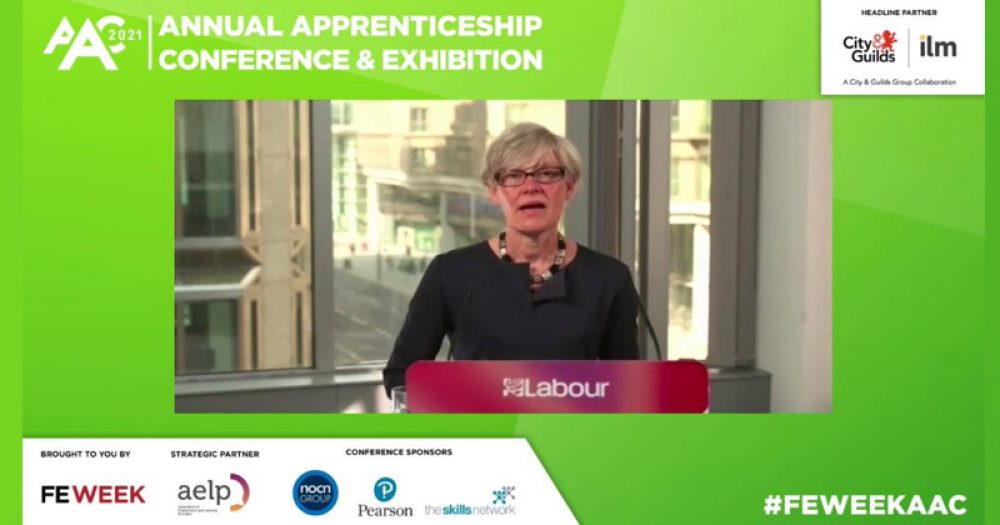Labour is “interested in exploring” greater devolution of skills budgets to mayoral combined authorities, its shadow education secretary has said.
Speaking to the FE Week Annual Apprenticeship Conference this morning, Kate Green would not say definitively whether Labour would hand over a greater amount of funding to metro mayors, many of whom already control their local adult education budgets.
But she said she “finds it very difficult to see how you can dictate these decisions from Whitehall.
“The needs of employers for apprenticeships in Cornwall and Devon are going to be very different from what we need in Greater Manchester,” the Stretford and Urmston MP said. “We’re very different sorts of economies.”
Her view is local and regional leaders “must be empowered, giving them a genuine voice to shape the system so that it delivers for their local economy and community; rather than settling for a system handed down but that doesn’t work for local communities.
“Our metro mayors and combined authorities must have a major role in supporting apprentices and apprenticeships, so that the training system works hand in hand with regional and local regeneration and industrial strategies to revitalise regional and local economies.”
As a Greater Manchester MP, she has become “immensely frustrated” the mayor for the area’s combined authority Andy Burnham “has not got his hands on the 16-to-19 skills or the apprenticeships budgets and all the spending that goes into skills and training in Greater Manchester”.
There are currently eight areas, including the Greater London Authority, which have a devolved adult education budget. And subject to legislation, Sheffield City Region and West Yorkshire combined authorities will join them from 1 August.
A number of the mayors leading those authorities co-signed a letter in 2018 calling for unspent levy funds in their areas to be handed to them.
London mayor Sadiq Khan went even further at the time, saying he wanted “London’s whole contribution to the apprenticeship levy to be ringfenced and devolved to spend on meeting the capital’s complex skills needs”.
In a speech on devolution last December, Labour leader Keir Starmer announced Labour would launch a UK-wide Constitutional Commission to look at devolving power to local areas.
He said: “The case for the next phase of devolution was urgent before Covid, but the pandemic has put rocket boosters under it.
“Our Labour council leaders, mayors and metro mayors have stood up for their communities against a centralised Westminster-knows best response.”
But when asked directly by FE Week editor Nick Linford if she would lobby Labour leader Keir Starmer to devolve the apprenticeship budget, Green would not give a yes or no answer.
Instead, she said: “I think it’s an important conversation to have with colleagues internally.”
Pressed again, she said: “I think we can interpret the answer being I’m very interested to explore that.”
Green stressed it was “really important you don’t make policy on the hoof, you are properly examining the implications of policies, and you’re thinking about talking to all the stakeholders in that policy territory.
“But as I say, I just think that if you’ve got a mismatch in governance between economic regeneration and social justice strategies on the one hand, and employment, training and skills strategies on the other, that does not sit easy with me.”

















Their are arguments for and against devolution and it’s really an administrative issue – I.E. which is administratively less wasteful and results in more delivery / participation (and not contrived participation volumes by shortening duration or content!)
Surely, what Labour should be focussing on when they link education and skills to social justice is how it is funded – what is their position on loans? (RPI + 3% negates any social mobility gains the disadvantaged get from better education/skills)
This is more about power and who controls the budget, which erodes the moral argument.